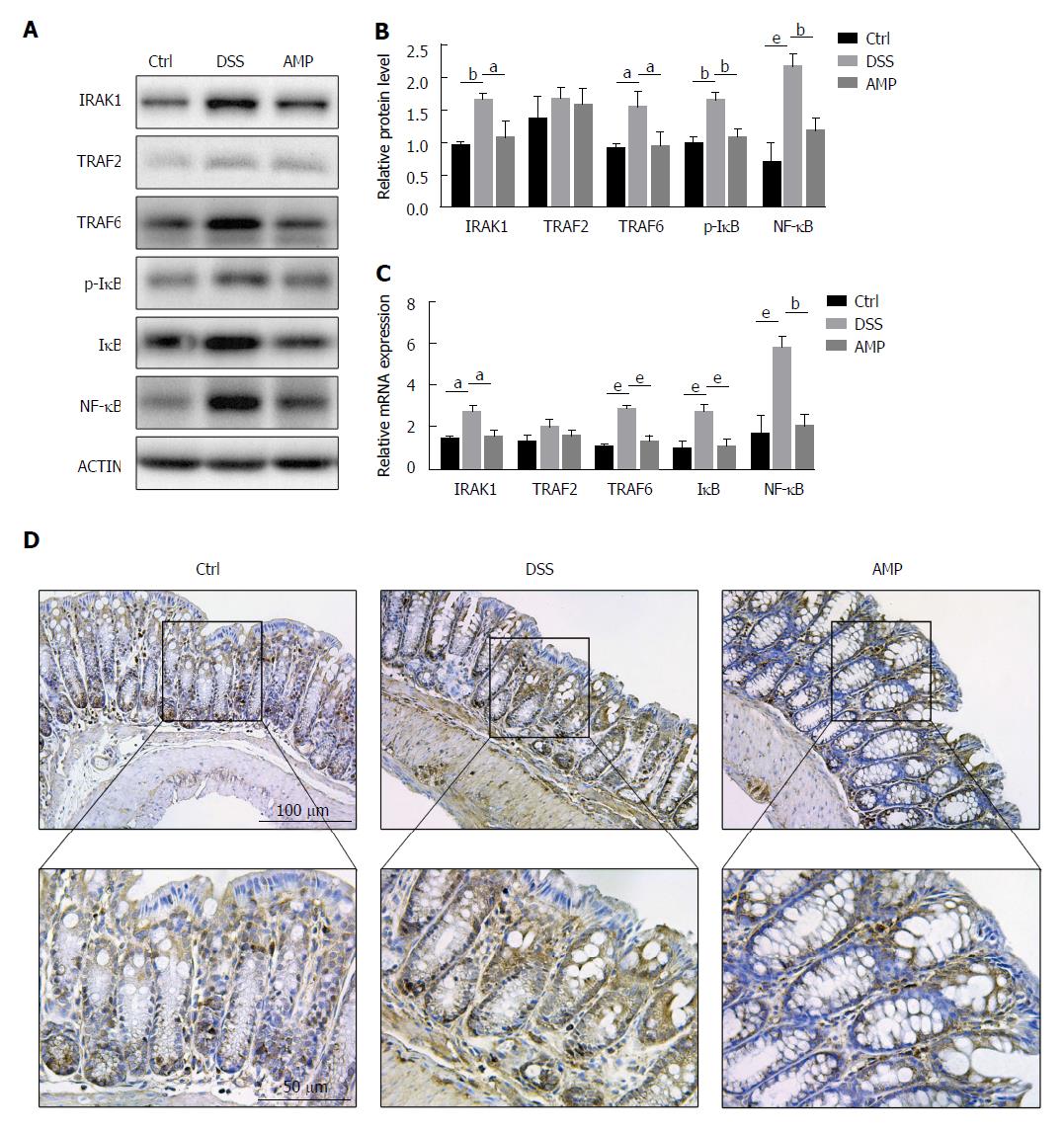Copyright
©The Author(s) 2018.
World J Gastroenterol. Apr 7, 2018; 24(13): 1398-1409
Published online Apr 7, 2018. doi: 10.3748/wjg.v24.i13.1398
Published online Apr 7, 2018. doi: 10.3748/wjg.v24.i13.1398
Figure 4 Ampelopsis grossedentata could suppress the inflammation-related signaling pathways in dextran sulfate sodium-induced colitis.
A: Representative western blot analyses of inflammation-related proteins in colon tissues; B: Statistical graph of western blot analyses, relative protein levels of IRAK1, TRAF2, TRAF6 and NF-κB were determined by normalization to actin, and relative p-IκB level was determined by normalization to IκB; C: mRNA expression of inflammation-related genes in colon tissues, relative mRNA expression levels of IRAK1, TRAF2, TRAF6, IκB and NF-κB were determined by normalization to actin; D: Representative images of anti-NF-κB immunohistochemistry. Data are presented as mean ± SD. aP < 0.05, bP < 0.01, eP < 0.001. AMP: Ampelopsis grossedentata; DSS: Dextran sulfate sodium.
- Citation: Chen YL, Zhang YL, Dai YC, Tang ZP. Systems pharmacology approach reveals the antiinflammatory effects of Ampelopsis grossedentata on dextran sodium sulfate-induced colitis. World J Gastroenterol 2018; 24(13): 1398-1409
- URL: https://www.wjgnet.com/1007-9327/full/v24/i13/1398.htm
- DOI: https://dx.doi.org/10.3748/wjg.v24.i13.1398









